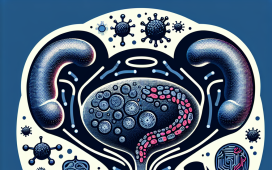Epigenetics is the study of how environmental factors can change gene expression without changing the DNA sequence. Epigenetics is a relatively new field of study, but it has the potential to revolutionize our understanding of health and disease.
There are a number of environmental factors that can influence epigenetics, including:
- Diet: What we eat can affect the expression of our genes. For example, a diet high in processed foods and sugary drinks can lead to the expression of genes that are associated with obesity and diabetes.
- Exercise: Exercise can help to regulate gene expression and protect against disease. For example, exercise can help to turn off genes that are associated with cancer and turn on genes that are associated with longevity.
- Stress: Stress can also affect gene expression. For example, chronic stress can lead to the expression of genes that are associated with anxiety and depression.
- Environmental toxins: Environmental toxins, such as pollutants and pesticides, can also affect gene expression. For example, exposure to environmental toxins can lead to the expression of genes that are associated with cancer and heart disease.
Epigenetic changes can be passed down from generation to generation. This means that the environmental factors that we are exposed to can have a lasting impact on our health and the health of our children.
There is a growing body of evidence that epigenetics plays a role in a variety of diseases, including:
- Cancer: Epigenetic changes can contribute to the development of cancer by turning on genes that are associated with cancer and turning off genes that are associated with cell growth and repair.
- Heart disease: Epigenetic changes can contribute to the development of heart disease by turning on genes that are associated with inflammation and turning off genes that are associated with cholesterol metabolism.
- Diabetes: Epigenetic changes can contribute to the development of diabetes by turning on genes that are associated with insulin resistance and turning off genes that are associated with glucose metabolism.
- Alzheimer’s disease: Epigenetic changes can contribute to the development of Alzheimer’s disease by turning on genes that are associated with inflammation and turning off genes that are associated with memory and learning.
As we learn more about epigenetics, we are gaining a better understanding of how environmental factors can influence our health and the health of our children. This knowledge can help us to develop new strategies for preventing and treating disease.








